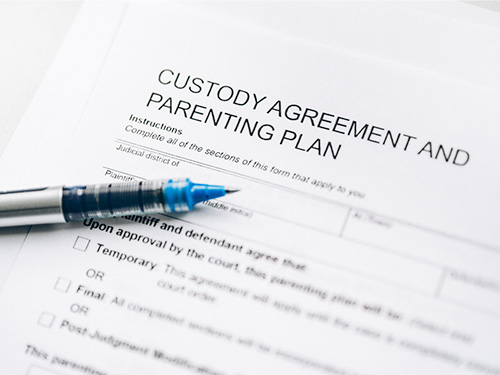
Maryland Inheritance Tax on Domestic Partners
If you live in Maryland and are in a long-term committed relationship, you may be surprised to learn that any inheritance you receive from your partner is subject to a 10% Maryland inheritance tax – unless you marry or become registered domestic partners.
The Process of Becoming Registered Domestic Partners
In Maryland, two people may become registered domestic partners if: (1) both persons are over the age of 18 (2) neither is the domestic partner of any other person, (3) they are not married, and (4) they are in a committed relationship with each other.
If one registered domestic partner dies without a will, then the surviving partner is treated the same as a surviving spouse:
- Having priority to serve as the Personal Representative
- Being entitled to the spousal allowance (currently $10,000)
- And inheriting the same share of the decedent’s probate estate as a spouse would
The surviving domestic partner is exempt from Maryland inheritance tax, whether the decedent died with or without a will.
If You Decide to End Your Partnership
You can terminate a registered domestic partnership in the following ways:
- Through mutual consent
- By one party, so long as you provide a copy to the other domestic partner
- By abandonment of one party for a period of at least six months without contact
- By marriage of one or more of the parties
- Or by death of one or more of the parties
Unilateral termination and termination through mutual consent take effect six months after the date of filing, while termination for the other reasons listed above takes effect immediately.
If a declaration of domestic partnership is not on file with the Register of Wills, then a surviving domestic partner may still be exempt from inheritance tax on jointly held real property that is a principal residence.
If you are in a Maryland domestic partnership, contact the attorneys at Lewicky, O’Connor, Hunt & Meiser, LLC to discuss your options.

Can a parent voluntarily waive receiving child support in Maryland?
The short answer is “no,” under current Maryland court precedent. In the recent case of Houser v. Houser, two parents who had one child born in 2018, formed an agreement under which:
- The mother waived her right to be paid child support from the father, including $40,000 in arrears
- The parents agreed that child support could not be modified for at least 24 months
- The father agreed to pay for the child’s health insurance
- The mother agreed to pay the first $6,000 in extraordinary medical expenses, with expenses over $6,000 being equally split between the parents
- The mother agreed to pay for the child’s extracurricular activities, and
- The mother agreed to pay for all work-related childcare expenses
The court rejected this agreement, finding that it was not in the child’s best interest. The decision was based on the fact that the father earned double the income of the mother. Therefore, the mother would be entitled to child support of $2,105/month under the Maryland Child Support Guidelines.
The parties appealed the judge’s refusal, but in June of 2025, the Supreme Court of Maryland affirmed the decision of the trial court. It was held that a parent’s fundamental right to dictate the care, custody, and management of a minor child does not supersede the child’s right to be supported financially after a divorce and custody case has been initiated.
In Maryland, when the issue of custody of a minor child is brought before the court, child support is also considered, whether either of the parents raised it or not. A Maryland court has an obligation to determine the amount of child support that is in the best interest of the child, not the parents.
If you have questions about child support, the attorneys at Lewicky, O’Connor, Hunt & Meiser LLC can help. Schedule a consultation today.

Is my Non-Compete Agreement Still Enforceable in Maryland?
Maryland has recently taken legislative steps to limit enforcement of non-compete agreements for some categories of employees. Generally speaking, Maryland law will enforce contractual non-compete agreements, if their scope is limited in duration and geographic scope. In addition to these general limitations that apply to all non-compete agreements, Maryland law now generally will not enforce non-compete restrictions in employment contracts of:
- Any employee who earns equal to or less than 150% of the State’s minimum wage rate. (At the time of publication, Maryland’s minimum wage is $15/hour, and $150% of that is $22.50 per hour); or
- Any employee in a position for which they:
- are required to be licensed under the Health Occupations Article (such as doctors, nurses, therapists, dentists, etc.);
- are employed in a position that provides direct patient care; and
- earn equal to or less than $350,000 in total annual compensation; or
- Any employee who is licensed as a veterinary practitioner or veterinary technician.
The above statutory restrictions are applicable if the employee is employed within Maryland, even if the employment contract was signed outside of Maryland.
Significantly, the prohibition against enforcement of certain non-compete arrangements in the medical and veterinary fields still does not allow an employee to take, or use for the employee’s own purposes, an employer’s client list, patient list, or other proprietary client or patient-related information.
Even for those persons earning over $350,000 per year that are required to be licensed under the Health Occupations Article and are employed in a position that provides direct patient care, non-compete restrictions cannot exceed one year from the last day of employment, and the geographic scope cannot exceed 10 miles from the primary place of employment. Upon request, the former employer must provide a patient with notice of the location where the former employee will be practicing.
These statutory limitations will not apply to some categories of employment agreements that were entered into prior to July 1, 2025.
Employers, and Maryland-based employees with non-compete obligations in their contracts, should review new and existing agreements with knowledgeable legal counsel, in light of these recent legislative developments.

Maryland’s New Child Support Guidelines
A shift in the way child support is calculated is coming to Maryland on October 1, 2025. Under current law, child support is calculated based only on the number of children whose support is being determined, and deducting from a parent’s income existing child support orders that are actually paid. Current law does not consider whether a parent is supporting other children in the home for whom there was no support order. There are many reasons for there to be no child support order – for example, there could be an informal child support arrangement, the other parent could be deceased, or the other children could be from a current marriage.
The new law accounts for children in the home that are there at least 92 overnights a year and to whom a parent has a legal duty of support. The parent’s income is reduced by calculating the amount of child support the parent would have paid if there was an order in place using only the parent’s income, multiplying that number by 75%, then deducting it from the parent’s actual income before a support award is made.
Courts have discretion to decline an allowance if they find, after considering the evidence and the best interest of the child for whom support is being determined, that the application of the allowance would be unjust or inappropriate.
If you have questions about child support, an attorney may help you better understand your rights and obligations. Please contact Lewicky, O’Connor, Hunt & Meiser at (410) 489-1996.

My dad needs a guardian, but he won’t go to the doctor. What should I do?
In Maryland, the law requires that a person seeking guardianship of an alleged disabled person present two certificates signed by qualified health professionals, along with a petition for guardianship. These certificates must be based upon a personal examination of the subject, and must detail the patient’s diagnoses, physical and mental conditions, cognitive function, everyday function, need for institutional care, and need for guardianship.
One of the certificates must be signed by a licensed physician, and the other can be signed by a licensed physician, licensed psychologist, licensed certified social worker-clinical, or nurse practitioner. In addition, one of the examinations must have occurred within 21 days prior to filing the petition for guardianship.
Frequently, an alleged disabled person’s medical team will decline to fill out the certificates, fearing a HIPAA violation. Even more frequently, the alleged disabled person will refuse to be evaluated in the first place, or a person who lives with or has control over the alleged disabled person might not permit the examination.
So, what can you do? In appropriate circumstances, you may file a petition with a Maryland court, requesting that two health care professionals be appointed in order to complete the necessary certificates. The court may hold a hearing and require the allegedly disabled person or the person not permitting the exam to appear and explain why the exam should not be allowed.
